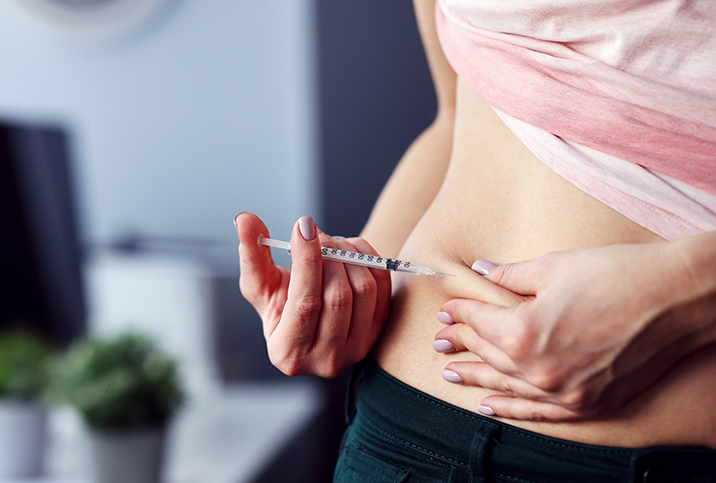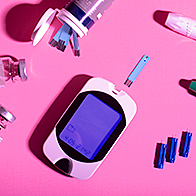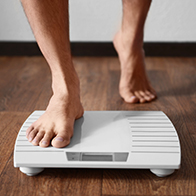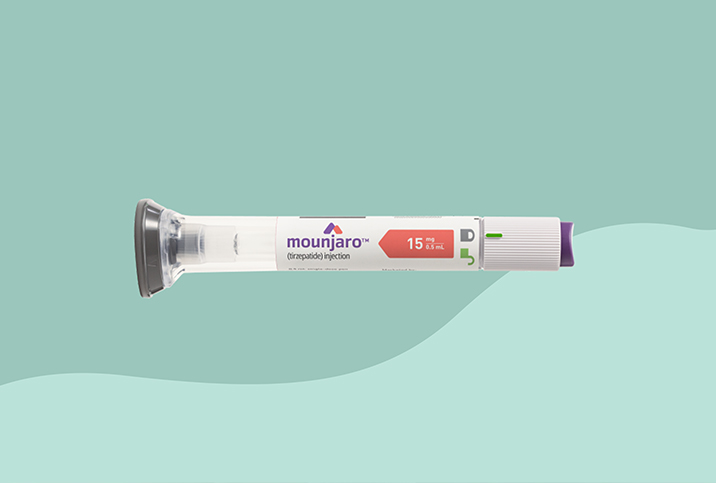Optimize Your Diet and Nutrition to Fight Diabetes

We are often told our diet lies at the root of our health and what we eat directly influences how our body feels and functions. This makes sense, but it's even more important for people with diabetes, who have to be especially mindful of what they eat, when they eat and how much they eat in order to properly regulate blood sugar levels.
If you have high blood sugar levels for a period of time, damage can be done to your blood vessels and nerves, including ones that supply your sexual organs. Poorly managed diabetes can also have a negative effect on libido.
If you've been diagnosed with diabetes or prediabetes—or you have concerns about developing diabetes—learn the best diet choices, how your diet influences the disease, and useful tips for staying healthy and minimizing the challenges of diabetes through a healthy diet.
How does diabetes affect nutritional needs?
Diabetes is a metabolic disease that affects the ability of the cells to take up and use blood sugar effectively.
Although people often lump different types of diabetes into one general category, it's important to distinguish them when discussing diet because the type of diabetes can have an impact on the nutritional strategies, needs and challenges.
When someone has type 1 diabetes, they cannot produce insulin naturally from the pancreas, so insulin injections are necessary.
With type 2 diabetes, the pancreas produces insulin but the body has become resistant to it, meaning the cells are no longer sensitive to insulin.
"Insulin resistance is the root cause of prediabetes and type 2 diabetes," explained Kimberly Gomer, M.S., a registered dietitian and director of nutrition at Body Beautiful Miami. "Insulin resistance means that your body is unable to respond to the amount of the hormone, insulin, that it is producing. The main cause of insulin resistance is too much belly fat and fat around the organs, called visceral fat."
She noted that having a waist circumference measurement of 40 inches or more for men and 35 inches or more for women is associated with an increased risk of insulin resistance.
Lisa Notaro-Pane, a registered dietitian at North Westchester Restorative Therapy & Nursing Center in New York, said if a person with insulin resistance or type 2 diabetes is overweight, weight loss can improve blood sugar regulation.
"A weight loss of just 10 percent of body weight can help improve the body's ability to utilize the insulin it produces," she added.
Dietary considerations
Both types of diabetes affect the body's ability to utilize blood sugar appropriately, so people with either condition should be mindful of specific dietary considerations.
"Every person with insulin resistance—the root of prediabetes and type 2 diabetes—is carbohydrate-sensitive or intolerant," Gomer said, adding that while there are many lifestyle factors that impact diabetes, your diet has the greatest impact on the disease, especially in people who carry excess belly fat. "Processed carbohydrates are a known culprit in increasing blood sugars and weight gain, but in many insulin-resistant people, even what we think of as 'healthy' carbohydrates, including fruit, oatmeal, potatoes and corn, [can be problematic]."
Notaro-Pane noted that people with either type 1 or type 2 diabetes should be mindful of what they eat and when they eat.
"Eating meals and snacks at scheduled times can help keep blood glucose levels consistent," she noted. "For those with type 1 or those with type 2 that are prescribed insulin, consistent meal times are important to prevent episodes of hyperglycemia or hypoglycemia."
Hyperglycemia is the medical term used to describe high blood sugar when the body has too little insulin. Hypoglycemia is the condition when blood sugar is lower than it should be.
"If a person has insulin resistance, they can prevent it from developing into prediabetes and then diabetes by losing excess weight, reducing the consumption of processed foods, avoiding processed seed oils, [such as] soybean, canola, sunflower, sesame, corn, vegetable and rice bran, as these impact the gut and are inflammatory," Gomer advised.
She added the focus should be to eat high-quality, unprocessed foods, such as lean proteins, vegetables and seeds, and to reduce the consumption of carbohydrates.
Essentially, the primary goal in terms of diet for people with diabetes is to keep blood sugar as stable as possible. Gomer explained this stability is important because elevated blood sugar levels—especially when chronic—are linked to many health consequences, including heart disease, circulatory problems, poor wound healing, increased risk of infection and even dementia.
How can your diet negatively impact diabetes?
It's natural to assume carbohydrates are the only dietary concern for people with diabetes because they most directly affect blood sugar and the insulin need/response. But Gomer noted there are other dietary factors to consider as well.
"Processed foods and alcohol aggravate the system by increasing fat, inflammation and blood sugar," she said. "Any foods that lead to weight gain and excess fat are the problem."
However, the problem doesn't begin and end just with the excess fat itself.
"Besides carrying excess weight and fat, an unstable blood sugar [level] is a day-to-day health problem," Gomer warned. "If a person is trying to live their life with elevated blood sugars, they are many times tired—exhausted, in fact—moody and irritable."
Notaro-Pane explained that if blood glucose levels are not well managed, serious complications can occur.
"Poorly controlled blood glucose levels can damage organs, such as the heart and kidneys, and can affect circulation and cause nerve damage," she said.
What should the ideal diabetes diet look like?
Gomer, who has more than 25 years of experience working with people with insulin resistance, prediabetes and diabetes, said diet is very individual, even in terms of the best diet for people with these conditions.
"Lifestyle factors like exercise, stress and sleep, along with genetics, can lead to different diet and meal plan needs," she said. "For example, if a person is not willing to cook or if they travel a lot, their diet and meal plan will look very different compared to [someone] who loves to cook and rarely eats out in a restaurant. The diet that is most effective is only effective if it is sustainable for that person."
Although there's certainly individual variability, Gomer explained that the main goals of a diet specifically for people with diabetes are blood sugar control and overall health.
She generally recommends a diet centered around protein, featuring a vegetable complement, to keep the person full, nourished and satisfied.
"The amount of carbohydrates is very individual," Gomer said. "For example, the best fruit choice for a diabetic is avocado—yes, it's a fruit!—because it's full of omega-3 fats, very satisfying and heart-healthy. The next would be berries: blueberries, strawberries, raspberries and blackberries. An example of a better starch would be acorn or butternut squash."
Tips for better nutrition
Gomer explained it's a challenge just trying to maintain a healthy eating lifestyle in a country where processed, unhealthy foods are the norm.
"We live in a culture where unhealthy food is the center of how we celebrate, gather and are entertained," she noted. "For many of us, food is our drug of choice—sugar, processed grains, fried foods—and what many are addicted to."
Gomer added that when it comes to diet and diabetes, the focus should be on blood sugar control and nutrition, and not just weight loss.
Her advice is to not let yourself get hungry, as this can lead to overeating, and stay away from fad diets and weight-loss supplements. Instead, eat real food, she recommended. She also suggested taking a walk after meals because the very nature of being sedentary can elevate blood sugar.
When considering nutrition for diabetes, knowledge is power, Gomer said.
"Take your blood sugar with either a finger stick or a continuous blood glucose monitor," she said. "Then you'll see in real time how food affects your blood sugar. One person can eat more carbohydrates than others. Certain foods will elevate blood sugar in one person but not in another.
"You only know what that looks like if you have the data. Testing blood sugar is the most powerful tool for diabetes," Gomer said.
Your doctor may have the best recommendation for continuous glucose monitors. Otherwise, you may want to take a look at a Signos device, the first continuous glucose monitor approved for people without diabetes. Even if you're just concerned about developing diabetes but have yet to be diagnosed with the condition, you can use the device to monitor your blood sugar.
A proactive approach to your health is always a wise decision.




















